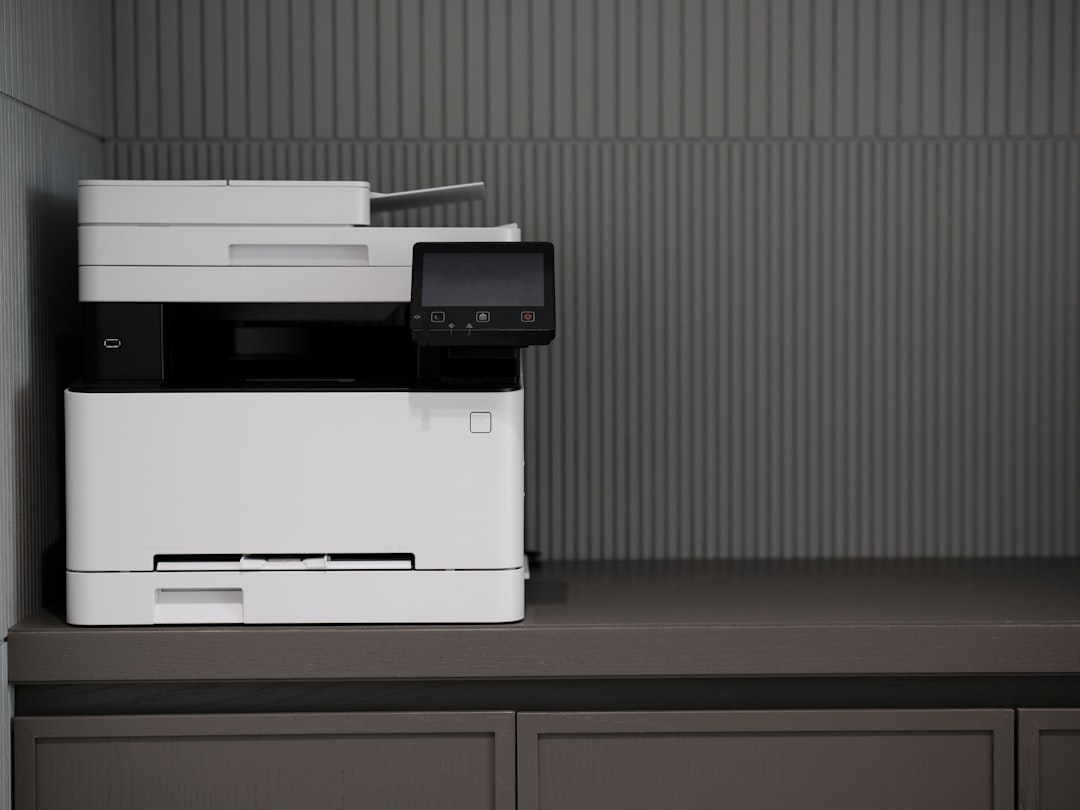Tesla hit with anti-trust suit over repair restrictions. Also HP is still barring 3rd party ink
Electric car maker Tesla was slapped with a pair of class action lawsuits for restricting third party repair of its cars. Also: HP was caught barring third party ink cartridges (again)!
Tesla hit with anti trust suit over repair restrictions
Tesla Inc is named in a pair of proposed class action lawsuits that accuse the company of unlawfully curbing competition for maintenance and replacement parts for its electric vehicles, forcing owners to pay more and wait longer for repair services in violation of U.S. anti-trust laws. The lawsuits (PDF) filed on Tuesday and Wednesday in federal court in San Francisco, allege that Tesla:
Designs its vehicle warranties and related policies to discourage Tesla owners from obtaining parts or services anywhere other than Tesla;
Designs its vehicles so that maintenance and repairs require access to diagnostic and telematic information accessible only through remote management tools exclusively accessed by Tesla; and
Limits access to its manuals, diagnostic tools, vehicle telematic data, and original equipment manufacturer (“OEM”) replacement parts.
Designs its electric vehicles, warranties and repair policies to discourage owners and lessees from using independent shops outside of Tesla's control.
The suits are similar to those filed against the agricultural equipment maker John Deere. Beginning in January, 2022, farmers began suing Deere, arguing the company is violating U.S. anti-trust law by thwarting the ability of farmers to service and repair their own equipment. The company has also artificially restricted the market for authorized repair through a policy of forcing small, independent John Deere dealerships to consolidate or lose their franchise, the lawsuit alleges.
Tesla has raised eyebrows before over how it uses software to compel use of Tesla parts and service. For example, the company made headlines after Tesla Model X and Model Y owners raised alarms that the company is refusing to enable a critical, safety-oriented software feature dubbed “Trailer Mode” unless the owners buy and install Tesla’s tow package, a pricey $1,300 OEM option that is out of stock in countries like the UK.
HP brushes off anti-trust fines, keeps blocking third party ink
At the other end of the spectrum, printer maker HP has apparently seen the losing side of an anti-trust lawsuit and decided “its not so bad!” The company has paid numerous fines and millions of dollars for its practices of restricting third-party parts, but has (unsurprisingly) been caught again restricting third party access to its platform.
Scharon Harding at Ars Technica reports that frustrated internet users began complaining last week that HP printers would not accept non-HP parts and displayed errors instead with reference to “dynamic security.” In spite of lawsuits and fines globally, the company is digging its heels in on this strategy, essentially arguing that putting any computerized part they have not manufactured poses an unjustafied cybersecurity risk.
Security and repairability are not mutually exclusive
Dynamic security measures are security features that continuously adapt and evolve in response to changing threats and vulnerabilities. This type of security is designed to be flexible and responsive, so that it can detect and respond to new security threats as they emerge.
It is true that cybersecurity risks are ever evolving, and companies need to be adaptable if they want to keep their reputations and customers safe. However, it is equally true that companies use cybersecurity flaws as an excuse when they want to control how their customers use their products.

Cybersecurity is an oft-cited excuse for manufacturers to restrict access to software and information needed to do maintenance and repair, but incidents of hacks related to physical repair and maintenance are nearly impossible to find.
While HPs lockdown on non-HP ink cartridges might be presumed to be about attacks launched via a compromised replacement cartridge, the company would be hard put to point to any such attack “in the wild.” Far more likely, and common, are remote, Internet based attacks on HP hardware that exploit laughable…err…lax security or vulnerable embedded software manufactured by HP itself. Such attacks enable malicious actors to simultaneously target thousands - or tens of thousands - of deployed and Internet connected systems at once. One example is the 2016 attack by the white supremacist known as Weev (Andrew Auernheimer) that saw HP printers at U.S. college campuses spewing anti-semitic rants. In that attack, Weev used a simple, one line script to instruct printers around the U.S. to begin spewing out copies.
In the meantime, repairability directly contributes to less waste, longer usage, and cost-savings for consumers—which should be weighed alongside things like the security of devices. However, when companies like HP are accused of less savory tactics like blocking the use of faxing and scanning when ink-levels were low, effectively forcing customers to buy more ink even if they only want to digitally scan a document, it becomes harder to believe their stated intentions of caring about their customers. The lawsuit from California that included these complaints around low ink levels halting product features argued that HP stood to gain billions from these tactics (which had nothing to do with security or third party parts.)
All about the paper
For HP, it looks like the company is making a calcuated risk. What’s a few million-dollar fines every year when you can force the purchase of tens of millions of dollars from ink that can be more expensive than the printers you sell?
By creating an environment where is it difficult or impossible to use non-HP parts, the easiest choice for consumers is to simply buy or refill printer cartridges with approved parts. However that doesn’t mean it’s the cheapest or most practical. But while security concerns are always important, they shouldn’t be a false-pretense for squeezing profits out of consumers.
Other News
Colorado Senate passes agricultural equipment right to repair bill. Colorado farmers are a vote and a signature away from having the right to repair their tractors, after the state senate followed the lead of the Colorado House in passing the Consumer Right to Repair Agricultural Equipment Act (HB23-1011) Thursday on a 25-8, bipartisan vote. The bill, sponsored by state Sens. Nick Hinrichsen and Janice Marchman, would provide farmers with repair options by requiring manufacturers to make available all materials needed to fix farm equipment such as tractors and combines. The bill now returns to the Colorado House, where it originally passed by a 48-12 vote, for a procedural vote. That would send the bill to Governor Jared Polis’ desk.
It’s time to jailbreak the farm. Our very own Paul Roberts, Australian hacker Sick Codes, Right to Repair advocate Kevin Kenney, and iFixit co-founder Kyle Wiens are speaking at LibrePlanet 2023 to discuss how to liberate farmers with free software and usurious OEM-operated software ecosystems from the grip of Big Agriculture.
You can register for the event and see sessions here. It runs from 3/18 to 3/19 both online and in person.
Australian farmers are calling for the right to repair their farming equipment, as many manufacturers keep a firm grip on the software that diagnoses issues, as well as spare parts. Federal Competition Minister Andrew Leigh said he wants either manufacturers to join a voluntary scheme in Australia, or the government to create a mandate.
A recent UN agreement to protect oceans aims to place 30% of seas into protected areas by 2030, but plastic pollution remains a growing issue. A new report from the 5 Gyres Institute warns that policymakers must put greater emphasis on reuse and tackle the problem at source rather than focusing solely on clean-up and recycling.
The report also calls for legislation that stipulates 75% of new packaging must be recycled plastic. The study warns that without immediate action, the rate of plastic entering aquatic environments is expected to increase approximately 2.6x from 2016 to 2040.
To combat greenwashing, regulators are cracking down on companies making unsubstantiated sustainability claims, and consumer authorities are urging brands to use more specific claims. Norway and the UK have taken action against firms that have made misleading environmental claims. Stricter legislation is also being called for, and some experts are recommending that claims be harmonized to make them comparable.
Making clothing more durable, repairable, and recyclable, and clearly labeled is the EU’s 2030 goal. Yet, despite rising greenhouse gas emissions and thousands of discarded clothes landing in African and Asian ports, the industry continues to ramp up production, making it unlikely that the EU's goals can be achieved.
Only 13% of material used in clothing is currently recycled, according to the Ellen MacArthur Foundation, and less than 1% is used to create new garments.
Artisans still exist, and they’re making high quality products. Greeley Hat Works, owned by Trent Johnson, is a custom hat-making business in Colorado that specializes in handmade hats. Johnson, the fourth owner of the company, learned the trade as an apprentice before buying the business in 1996. He continues to make hats in the old-fashioned way, emphasizing both quality and service.






